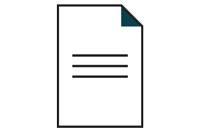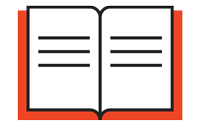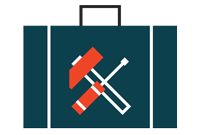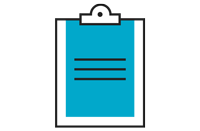
Practitioners’ Guidance to Assessing Systems Change
- Partner: USAID Feed the Future Market Systems and Partnerships (MSP), DAI
- Publication Type: Learning Brief
- Date: May 31, 2023
Brief 1 in the MSD in MEL Clinic Series is a guide that draws from the practical experience of MEL Managers working on market systems development (MSD) programs around the world to help other MEL Managers find what works best for their program and teams in assessing systems change.
Read More
Shifting the Locus of Learning: Catalyzing Private Sector Learning to Drive Systemic Change
- Partner: USAID Feed the Future Market Systems and Partnerships (MSP), DAI
- Publication Type: Learning Brief
- Date: January 23, 2023
Learning is at the heart of the process of economic development—it drives more competitive, resilient, and inclusive firms and systems. Yet learning is less frequently seen as a critical function within systems that can catalyze and quicken systems change and enable adaptation. This brief makes the case that programs can and should shift the locus of learning from being only program-focused to system-focused.
Read More
Women-Inclusive Return on Investment (WI-ROI) Framework
- Partner: USAID Feed the Future Market Systems and Partnerships (MSP)
- Publication Type: Learning Brief
- Date: November 14, 2022
The new Women-Inclusive Return on Investment (WI-ROI) Framework builds on an existing body of evidence and research around the business case for investing in women’s inclusion. It also reflects the industry outlook on women’s inclusion at the firm level and highlights successful business strategies to achieve financial impact from investment in women’s inclusion.
Read More
Scale2Save: Driving Financial Resilience Through Formal Savings Among the Low-Income Population
- Partner: World Savings and Retail Banking Institute (WSBI), European Savings and Retail Banking Group (ESBG), Mastercard Foundation
- Publication Type: Report
- Date: November 2022
This learning paper explores customer resilience in the financial sector and provides a comprehensive regulatory toolkit for policymakers to develop frameworks that foster customer resilience and emphasize the role of financial institutions in promoting responsible practice and access to financial products.
Read More
Gender Norms in Financial Inclusion: Diagnostic Guidance
- Partner: CGAP (Consultative Group to Assist the Poor)
- Publication Type: Guidance
- Date: October 2022
There is growing recognition of the important role gendered social norms play in influencing how women access, use and benefit from financial services and of how gender norms contribute to consistently lower rates of financial inclusion among women. CGAP, working with MarketShare Associates, developed a methodology for systematically unpacking the behavior of women as customers and users of financial services, assessing how these behaviors are shaped by gender norms, and in turn establishing how women’s financial inclusion is impacted.
Read More
Pilot Testing of the Toolkit To Address Gender-Based Violence in Agriculture and Market Systems Development: Learning Brief
- Partner: USAID FTF Advancing Women’s Empowerment (AWE), EnCompass LLC
- Publication Type: Brief
- Date: August 1, 2022
This learning brief shares results from pilot testing the Toolkit to Address Gender-Based Violence in Agriculture and Market Systems Development with the Feed the Future Uganda Inclusive Agriculture Markets (IAM) Activity.
Read More
Feed the Future Inova Business Cases
- Partner: USAID, DAI
- Publication Type: Business Cases
- Date: February 10, 2022
The USAID Mozambique Feed the Future Agricultural Innovations Activity (FTF Inova), implemented by DAI in partnership with MSA, developed six business cases to offer tangible proof that enterprises can profit from investing in addressing challenges experienced by smallholder farmers. The business cases cover three themes: supply chain management; input distribution networks; and support services. Each business case summarizes the prevailing business model being applied, the new opportunity, what options were explored, the value proposition for smallholders and others, the timeline, return on investment, recommendations, and risks going forward.
Read More
Putting Gender at the Heart of Business Environment Reform
- Partner: International Labour Organization (ILO)
- Publication Type: Report
- Date: October 25, 2021
This report charts some key entryways for better incorporating gender in business environment reform, with a focus both on policies themselves, and the processes for their proper implementation.
Read More
Investment Climate Reform Toolbox
- Partner: Investment Climate Reform Facility (ICR Facility)
- Publication Type: Toolkit
- Date: September 2, 2021
The Investment Climate Reform Toolbox (ICR) Toolbox is written for policy-makers and the business membership organizations in African, Caribbean and Pacific (ACP) countries and beyond, and is designed to respond to common challenges faced by those working to develop a business environment for a thriving, inclusive, and sustainable private sector.
Read More
Beyond building: how social norms and networks shape mason construction practices in incremental homebuilding
- Partner: Habitat for Humanity Terwilliger Center for Innovation in Shelter
- Publication Type: Journal Article
- Date: September 1, 2021
How do low-income households and masons make house construction decisions? This three-country study examined social norms, networks, and information flows that influence construction practices in Kenya, India, and Peru. The research sought to answer the following questions: 1) How do households and individuals make housing decisions? 2) What are the information flows, key influences, and social norms that steer these decisions? and 3) How can programmes leverage knowledge about norms to improve the quality of home construction?
Read More


